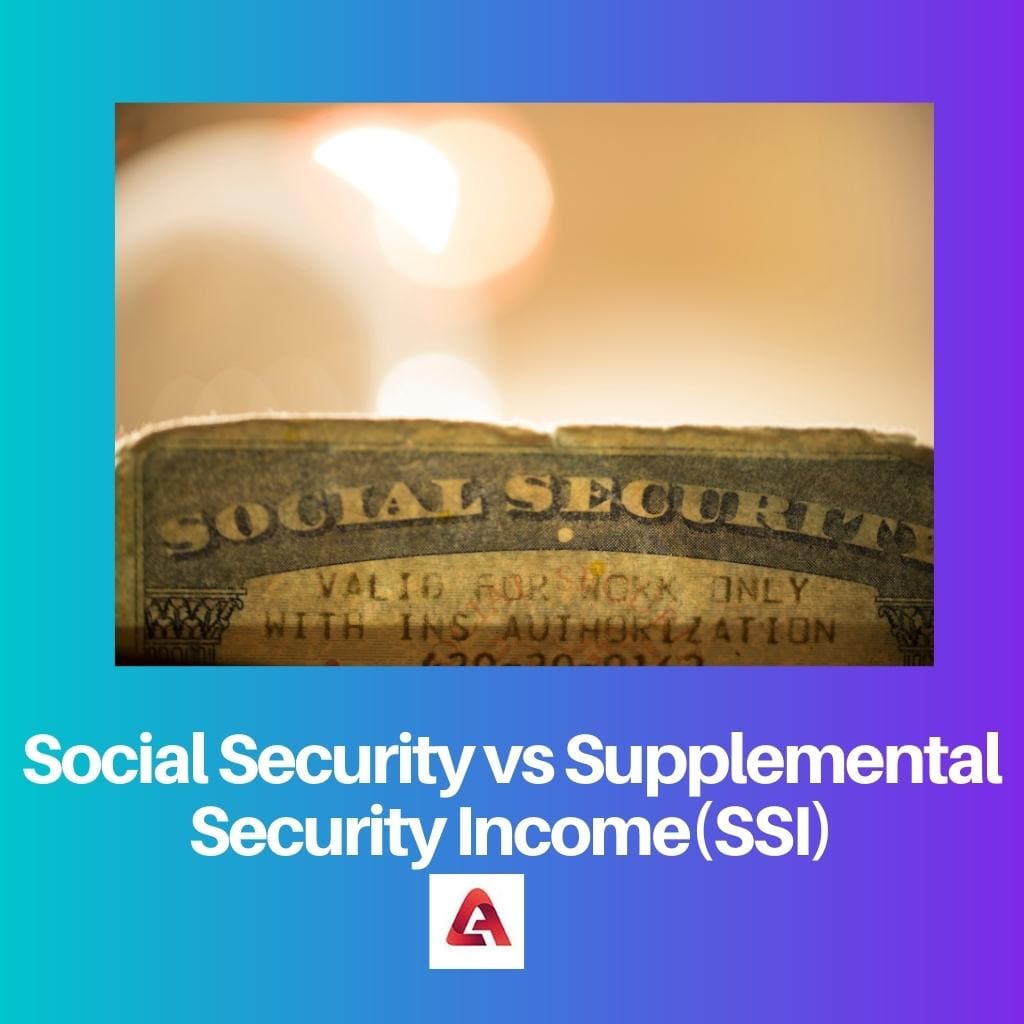First comes education, then a good job; after that, one needs to start a family, or that’s what society dictates and finally, retirement.
Now, most people try to save up for their retirement, but it is easier said than done; with everyday expenses, healthcare, and emergencies, it is not always possible to have a certain amount of retirement funds.
That is where Social Security comes in; it provides a base income or pension for certain strata of society, especially old people, survivors, and people with disabilities.
This is a federal pension system of sorts, where the current worker pays a certain amount which in turn helps the retired ones, who did the same when they were a part of the workplace.
SSI is a Federal income supplement program wherein people with limited income or resources can benefit from it.
It is targeted to help the ones in need, like old citizens, people with disabilities like blindness, and more.
Key Takeaways
- Social Security is a federal program that provides retirement, disability, and survivor benefits to eligible individuals, while Supplemental Security Income assists people with disabilities and low income.
- Social Security benefits are based on a person’s work history and contributions, while SSI benefits are based on financial need.
- Social Security benefits are funded through payroll taxes, while SSI benefits are funded through general tax revenue.
Social Security vs Supplemental Security Income(SSI)
The difference between social security and SSI is that social security is based on a person’s or their family member’s earnings while in the workforce. In contrast, SSI is based on the needs of an individual.

Comparison Table
| Parameters of Comparison | Social Security | SSI |
|---|---|---|
| How does it work | People who used to be in the workforce and have certain minimum credits can use this as a retirement or disability fund. | This does not depend on prior work or credit but rather on the present resources or income. |
| What is it | Monthly payment benefits are given to people over 62 or disabled. | Monthly payment benefits are given to people with limited income and resources who are 65 or above or have a disability, including blindness. |
| Whom does it benefit? | The individual and their family. | Only the individual. |
| Funded by | The people on the payroll. | U.S Treasury. |
What is Social Security?
This program is funded by basically the people, the taxes the current workforce pays to the Federal government.
A person who has worked and paid the required taxes for at least ten years is 62 at the minimum while applying for the benefits.
It covers not only the former worker but also their spouses or ex-spouses.
There is a minimum credit requirement, and after that is met, the benefit is provided based on their average monthly income during the 35 years of their highest income.
To get disability benefits, which might last for one year or more or result in death, the person or even their family can apply for the same.
The qualifications are based on certain earning tests and also include blindness.
The children or spouses of a deceased worker can also get benefits, which the survivor benefits, depending on the deceased worker’s income.
However, this depends on circumstances and other variables, so a bit more complicated than the other two.
Starting in 1935, this is one of the major best Acts ever passed by the federal government; it has also kept up with changing times and inflation rates and changed the rules as per the current scenario.
Also, none of the benefits or the amount of it is dependent or deterred by other factors like other income sources, the family one may live with, and medical benefits.
However, there has been a disadvantage in recent years, as the number of people drawing benefits outweighs the number of people in the workforce.
Thus there is a rising gap between the two and so in the future, there might be a need either to reduce the amount for the benefits or raise the age for it or a combination of the same.

What is Supplemental Security Income(SSI)?
Unlike Social Security, SSI is more geared toward providing for people who need extra help to get by.
This is not based on any prior income of a person; rather, it depends on their present income and resources or the absence of it; they provide monthly benefits to disabled and old people. (65 and above)
They provide medical benefits and even food assistance in certain cases. The medical benefits include the hospital bill for the stay, the prescription drugs, and other similar costs.
This is funded by the general funds of the U.S. Treasury and not by the people. So these benefits might vary depending upon one’s income or their caregiver’s or family’s income.
This is exclusively for those unable to meet their basic needs of food, shelter, and healthcare.
There are four living arrangements in place for such a situation, A, B, C, and D. In some cases, the person might have rental liability or need assistance to get food and even medical health care or only one of the above.
A separate plan, “C”, is especially aimed at children.

Main Differences Between Social Security and SSI
- Social Security is income and entitlement driven, while SSI is based on the “need” of the individual.
- Social Security payments are not limited and depend on the individual’s income in the workforce. SSI has a limited payment basis though it does not depend on any prior work one may or may not have had.
- Social Security is financed by the taxes paid by the current workers under the Self-Employment Contributions Act (SECA). While the U.S Treasury funds the SSI.
- Social Security does not depend on the current income or family resources one might have if they are otherwise eligible. SSI, on the other hand, depends on both of these, as it is more about providing the necessities to people in need.
- Families are not included under the SSI benefits; however, in the case of social security, there are spousal benefits and benefits for other family members, even if the original worker might have been deceased.

The balance between providing support and managing economic constraints is a continual struggle for these programs.
You’re absolutely right, Adams Greg. It’s a delicate balance to maintain.
There’s no denying the value of these programs, but they also pose significant economic challenges.
The Social Security program is such a critical support system for many in our society. It’s important that we continue to uphold and improve it.
It’s an essential part of our society, but there’s always room for enhancements.
I completely agree, Greg78. It’s a program that has had a profound impact.
The economic complexities associated with these programs highlight the need for ongoing evaluation and adaptation.
It’s evident that these programs have had a significant impact, but it’s crucial to address the challenges they face.
Indeed, Florence59. Continual assessment and enhancement are essential for their continued effectiveness.
The Social Security and SSI programs play an important role in supporting many individuals. However, they face complex long-term challenges.
While they’ve been integral, it’s evident that these programs need careful consideration and thoughtful planning for the future.
Indeed, Sabrina Richardson. It’s crucial to address these challenges to ensure the effectiveness of these programs.
I’m so glad SSI exists. Such a program can be helpful to those who are in real need.
Absolutely, Owen! It’s essential to have a safety net for the most vulnerable in society.
While it’s commendable that SSI exists, there are definitely some economic challenges associated with it.
This provides such critical financial support to those who need it most. A vital program for our society.
Indeed, Tracy. It’s programs like this that make our society more equitable.
While it has its benefits, the Social Security system also has its drawbacks as outlined.
It’s crucial that we continue to provide support to those in need, especially with programs like SSI. It’s a lifeline for many.
Absolutely, Maria. These programs are vital for many families in the U.S.
While SSI is an important program, it also faces economic and demographic challenges.
The Social Security program has been a lifesaver for many. It’s a great way to ensure financial security in retirement.
Absolutely, Zharrison. It’s an important part of the social safety net.
The details on Social Security and SSI are important to understand. Thanks for laying them out in such a clear way.
I agree, Zach23. This article provides a comprehensive overview of these crucial programs.
It’s clear that these programs have played a significant role in supporting many individuals over the years.
It’s impressive to see how these programs have evolved over time to address changing needs in society.
Absolutely, Chapman Beth. They’ve adapted to remain relevant in a shifting landscape.
While the evolution of Social Security and SSI is commendable, there are still areas that require attention.